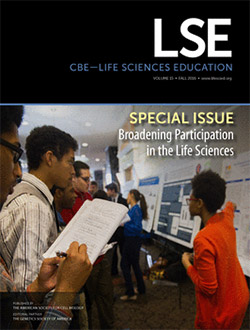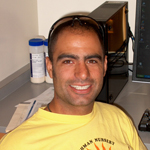NIGMS’ longstanding support of and commitment to programs that promote workforce diversity have contributed to significant progress ![]() , but persistent representation gaps along demographic lines remain in the ranks of both independent investigators and scientific leadership. These gaps lead to the loss of valuable contributors from the talent pool and limit the ability of the biomedical community to identify and address critical scientific and societal concerns. A special issue of CBE-Life Sciences Education
, but persistent representation gaps along demographic lines remain in the ranks of both independent investigators and scientific leadership. These gaps lead to the loss of valuable contributors from the talent pool and limit the ability of the biomedical community to identify and address critical scientific and societal concerns. A special issue of CBE-Life Sciences Education ![]() , published September 1, provides the broader community with a chance to assess the progress made and plan for a future in which we cultivate and harness all available talent.
, published September 1, provides the broader community with a chance to assess the progress made and plan for a future in which we cultivate and harness all available talent.

The papers in this issue, which I edited with Pat Marsteller of Emory University, fit four main themes:
- Innovative and effective interventions or approaches for broadening participation.
- Mechanistic explanations for why certain approaches have been effective.
- Novel insights about institutional and systemic factors that influence broadening participation efforts.
- Syntheses of research and practices that provide a “plan of action” heading forward.
NIGMS leadership, staff and grantees authored 11 of the 35 features, editorials, essays and articles in the special issue. While all of the papers focus on topics of importance to developing a diverse scientific workforce, I wanted to call your attention to a few representative articles:



 I’m very pleased to announce a new annual lecture to highlight the achievements of some of NIGMS’ early career grantees.
I’m very pleased to announce a new annual lecture to highlight the achievements of some of NIGMS’ early career grantees.